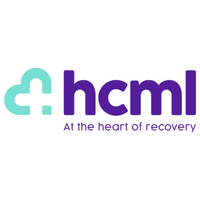Turning stress into a positive in the workplace
Stress can motivate us, increase our energy and keep us more focused.
We know that it can help us meet daily challenges, both at work and play as well helping us reach our goals and ultimately making us smarter, happier and healthier.
In fact, too little stress can lead to boredom and depression.
While some level of stress in our lives, both at home and at work is okay, too much stress, or poorly managed stress can cause anxiety and poor health along more long-term chronic health conditions.
We are not robots, and the body has a finite capacity for maintaining high levels of stress.
When we reach that point, this is when there is a sudden 'fall off the cliff' or 'nosedive' into territory of burnout.
There are levels of stress that are manageable but it’s important that we know what to look out for when it’s all becoming too much, including signs, symptoms and typical phrases people might use.
How stress manifests
We can all appreciate times when we are feeling stressed.
Typically, this might manifest in physical or psychological symptoms such as faster heart rate, increased breathing rate, sweaty palms or feeling on edge with an inability to relax.
These symptoms generally come from the body’s release of adrenaline.
This allows us to develop and maintain focus on a goal and motivates us to carry on and increases our release of energy stores to maximise our potential during an acute period of stress.
This is known as our ‘fight or flight’ reaction.
Sometimes this stress is good for us.
It motivates and that ‘shot’ of adrenaline can push us to achieve great things.
Putting ourselves under a manageable level of stress can be setting ourselves goals to achieve, milestones to accomplish and that increased heartrate can really spur us forward and keep us excited, especially at work if we are involved in a big project or something that is going to make a big impact.
A heightened state of stress, however, experienced over a long period of time, either one stressful experience which is ongoing, or repeated in quick succession, can lead to a chemical reset in the body.
When this happens, as well as generating adrenaline, the body starts producing higher levels of cortisol which will eventually lead to more sustained problems.
Spotting the signs of prolonged stress
There are physical signs that this is happening to someone.
They may experience intense fatigue, hair loss and headaches to name just a few.
An individual’s cognitive instincts are also impacted.
These high levels of stress can cause memory problems, poor concentration, negative and muddled thinking as well as finding it difficult to make decisions, which can be particularly pertinent in the workplace.
When experiencing prolonged periods of stress, employees might find that they eat more or sleep less, self-neglect or even turn to alcohol, drugs, or smoking to cope.
All these factors can have a huge emotional impact too and can eventually lead to a loss in confidence, anxiety, depression, and periods of being overwhelmed.
Reaching burnout
Over time, chronic stress can lead to the very distressing and sometimes incapacitating state of ‘burnout’.
This is when the individual no longer has the capacity to care or engage.
You may experience feelings of energy deletion or exhaustion.
At work, employees may find that there is an increased mental distance from their job and have feelings of negativity or cynicism towards it.
This often leads to reduced efficiency in the workplace.
The problem is that burnout does not happen suddenly and is often a gradual change in a person and it’s imperative that managers and colleagues be alert to the signs of stress and offer help and support.
Recognition of the symptoms and signs of burnout are often hard at the time it is happening, and why burnout often happens suddenly.
Management having awareness of the risk factors is key.
Life today is busy, hectic and more fast-paced that it has ever been, and we are not built for it.
Several features of today’s society can lead to increasing stress levels which managers need to be aware of and take steps to mitigate.
Hybrid working, for example, has bought with it new challenges with many people finding it difficult to switch off or change from work to leisure time.
Employees who are juggling work commitments with caring responsibilities for both young and old tend to be most at risk as these individuals may not feel they have the time to put their own needs first.
Combine this with the financial pressures we continue to see, and this creates a perfect storm for stress.
Managing stress
Not all stress comes from the workplace in isolation; it’s likely to be a combination of work stress and pressure along with external factors too.
Strategies for managing excess stress and burnout may include attention to diet, exercise and nutrition as well as mindfulness practices.
Organisations have an important role to play in supporting individuals who are at risk of stress.
This can be in the form of promoting work-life balance (through flexible working hours, remote work options, take up on annual leave, volunteering days) and fostering a positive work environment.
Providing wellbeing programmes to colleagues and taking measures to support the physical and mental health of their workforce can really help.
An effective and active engagement in Mental Health awareness training, offering of counselling services, employee assistance programmes should include measures that help support employees.
This might include offering them someone impartial to talk to about they feel. This person can help the employee put measures and tools in place to help better manage the stress.
It’s also important that employees can access help on meditation, mindfulness and exercise to help them focus.
Employees who feel better will deliver greater results for the business.
Supplied by REBA Associate Member, HCML
HCML is a health and wellbeing provider, offering integrated and personalised healthcare solutions.








